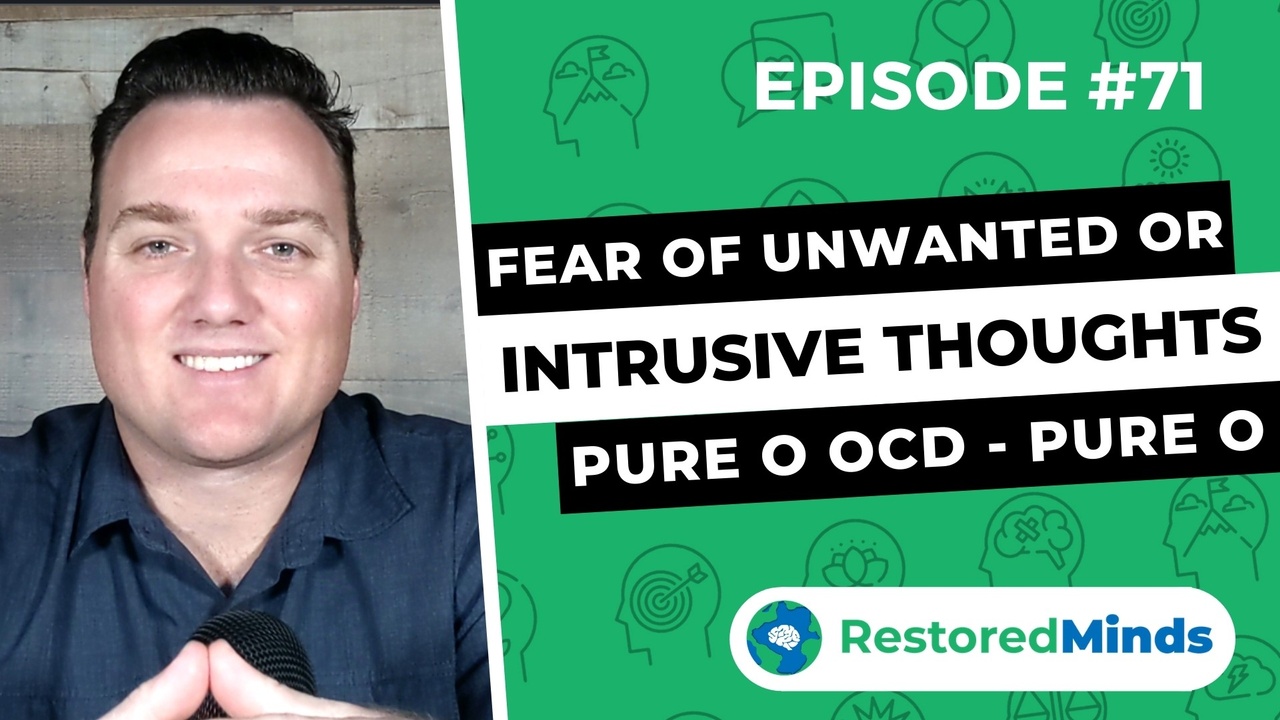Fear of Unwanted or Intrusive Thoughts - Pure O OCD - Pure O
Feb 18, 2021
Understanding and Overcoming the Fear of Unwanted Thoughts: A Comprehensive Guide
What Are Unwanted or Intrusive Thoughts?
Unwanted or intrusive thoughts are those that pop into your conscious awareness seemingly out of nowhere. These thoughts often don't reflect who you are or your true beliefs and can be quite disturbing. They can make one question their sanity, morality, and overall self-worth. There are generally three categories:
-
Violent or Harmful Thoughts:
These include what-if scenarios, images of violence, or harmful intent.
-
Sexual Intrusive Thoughts:
Thoughts that are sexually inappropriate or distressing.
-
Religious or Existential Thoughts:
This can involve fears of possession, going to hell, or the meaning of life.
The Misconception of "Pure O OCD"
Many people might classify these experiences under what's often termed as "Pure O OCD," or purely obsessional obsessive-compulsive disorder. This term implies a form of OCD where the compulsions are purely mental rather than physical. However, this terminology is misleading. In reality, there are always behaviors—like mental ruminations, avoidance, and seeking reassurance—that accompany the obsessive thoughts, forming a vicious loop.
Why These Thoughts are "Normal"
One of the hardest parts about dealing with intrusive thoughts is the shame and isolation they can bring. Here's what you need to know:
-
Most People Experience Intrusive Thoughts: Yes, the thoughts might be disturbing, but having them is within the realm of normal human experience.
-
Ego-Dystonic Nature: These thoughts are ego-dystonic, meaning they don't align with your self-perception. This disparity is often why they cause such distress.
The Real Problem: Behavioral Responses
The crux of the problem isn't the intrusive thought itself but the behaviors you engage in to manage the stress and anxiety these thoughts bring. These "safety behaviors" include:
-
Ruminating:
Constantly analyzing and overthinking the thought.
-
Avoiding Triggers:
Steering clear of situations that may provoke the intrusive thoughts.
-
Reassurance Seeking:
Constantly seeking validation from others that you’re “normal” or that you won’t act on these thoughts.
Engaging in these behaviors only serves to perpetuate the loop of OCD. The more you try to avoid these thoughts, the stronger they come back.
Breaking the Cycle with Exposure and Response Prevention (ERP)
One effective way to deal with unwanted thoughts is through Exposure and Response Prevention (ERP). This method involves:
-
Exposure:
Facing the intrusive thoughts head-on without avoiding them.
-
Response Prevention:
Refraining from the compulsive behaviors that aim to neutralize the thoughts.
By doing so, you teach your brain that these thoughts are not dangerous, which helps to reduce the anxiety they cause over time.
Real-World Applications and Recovery
Think about something you used to worry about but no longer do. What’s changed? Probably your reaction to that thought. This illustrates that recovery often means you’ve stopped engaging in behaviors that gave the thought power over you. You no longer respond with anxiety, worry, or compulsive actions.
Conclusion
Dealing with unwanted or intrusive thoughts can be incredibly isolating and distressing, but it’s important to understand that the thoughts themselves are not the primary issue. It’s the behaviors we engage in as a response that keep the cycle going. Through methods like ERP, we can learn to manage these thoughts effectively, significantly reducing their impact on our lives.


